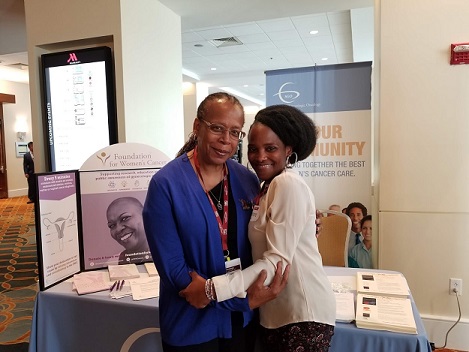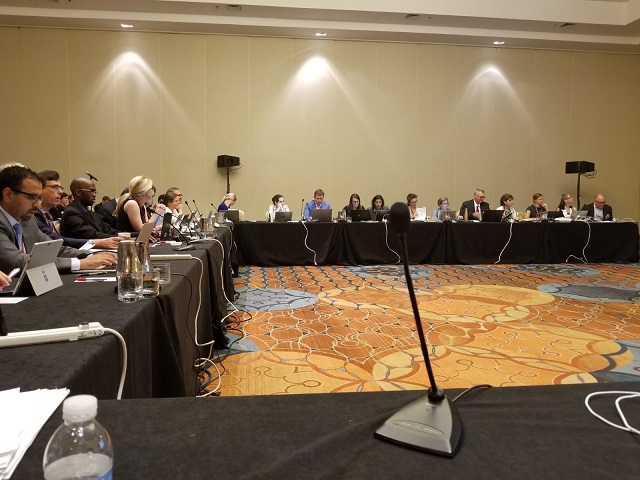
ECANA Steering Group Patient Advisor, Adrienne Moore was invited to be an NRG Oncology Patient Advocate Committee (PAC) representative for the Uterine Corpus and the Health Disparities Committees.
She attended their first meeting in July 2019 and reports on what she learned!
Written by: ECANA Steering Group Adviser Adrienne Moore
What was My Role?
Because I am new to the council, I was grateful to spend time with Dicey Scroggins, my designated mentor and long-time patient advocate. She helped to clarify my opportunities to offer my viewpoint and also emphasized the power of simply being present at the table.
The Investigative Trials are conceptualized in what are termed Protocols for the purposes of the National Cancer Institutes (NIH) Cancer Therapy Evaluation Program. These Protocols were given to me to review and take notes on prior to the meeting. They are written heavily in medical terminology and statistics that outline the processes and objectives of the trial.
As a patient advocate, my primary obligation was to focus on how these processes and objectives might either benefit or adversely affect patients participating in the trial and offer a viewpoint that may not have been considered by the investigator(s). For example, there was a protocol that required participants to have CT scans every six weeks. The other endometrial cancer patient advocate on the committee interjected that six-week intervals should require some additional thought as this could add burdensome physical and financial stressors on patients who might be struggling with side effects and/or be strained by the high co-pays for scans at this frequency. It was so heartening to see how the advocate’s opinion was thoughtfully accepted.

After the meeting, I talked with Dr. Matthew Powell, the committee chairperson, who expressed his dissatisfaction with currently low rates of survival in Stage 3 cases with recurrence. I indicated that I had a personal stake in improving survival rates and decreasing recurrence given that I am in remission from Stage 3 disease. Dr. Powell said he felt inspired by my case and was happy to put a face to what they’re trying to do. He also said that “We can do better!” for recurrence cases.
Reflections
Personally, although I thought that I would feel more than a little intimidated attending this meeting, everyone that I came in contact with very engaging and welcoming.
No one made me feel small and I felt respected throughout. Everyone was excited for what ECANA is doing. I sat at the table in the front of the room amongst all of the Uterine Corpus committee members and Dr. Powell gave me the space to speak and introduce myself.
I learned what goes into developing proper protocols for care for what goes on before getting to the chemo chair. For making sure we’re getting the right medicines, or medicines that work best.
In the Black community, many people think going into a clinical trial is an indication that you are seriously ill, or it is a death sentence. Being involved so closely with this process, and the people that are shaping the trials, I saw that's not true.
I previously thought the people developing clinical trials saw patients as only numbers and statistics, but I could hear the real care for people with EC from the researchers during discussion.
Overall, this was one of the most exciting and sobering experiences I could never imagine having as a result of being a cancer patient. Exciting because I realize the value of the opportunity to be at the front lines of the advancement of treatments for EC, and sobering because although the patients in these studies were not me, any of them could be me.

